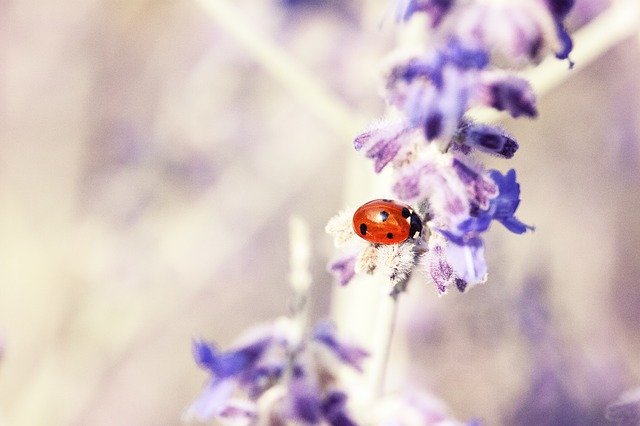Adjectives in French change form to agree with the person or thing that they describe. They change according to gender (masculine or feminine) and number (singular or plural), so adjectives have four forms: masculine singular, feminine singular, masculine plural, and feminine plural. Sometimes those forms are spelled and pronounced the same, or often spelled differently but pronounced alike.
Regular Adjectives
With most adjectives in French, you just add –e to the masculine singular to form the feminine singular. And then you add –s to both of those to form the plurals: –, -e, -s, -es. (The adjectives below are in the order masculine singular, feminine singular, masculine plural, feminine plural.)
- big, tall: grand, grande, grands, grandes
- little, short: petit, petite, petits, petites
- interesting : intéressant, intéressante, intéressants, intéressantes
- American: américain, américaine, américains, américaines
You probably know that a lot of final consonants in French are silent. So, petit ends in the sound –ee as in see. The -t isn’t pronounced at all, kind of like puh-TEE. But when you add the –e to make it feminine, that –e activates the –t, and you get puh-TEET.
And since the final –s is silent, the plurals are pronounced just like the singulars. Masculine petit and petits are both puh-TEE, and feminine petite and petites are both puh-TEET.
That doesn’t mean that you never pronounce the –s ending, though. French has liaison, which links the last consonant (otherwise silent) of one word to the next word if that next word begins in a vowel. Les petits enfants (the little kids) is lay puh-tee zah(n)-fah(n). The -s of petits is tacked onto the beginning of enfants, where it sounds like a z. (The transliteration is very approximate! It’s hard to represent sounds from one language in the spelling system of another.)
Adjectives ending in -e
If an adjective already ends in –e in the masculine singular, don’t add another. So adjectives like malade (sick) and drôle (funny) just have two forms, pronounced alike.
- sick : malade, malades
- funny : drôle, drôles
The ending –é is not the same as –e. Here, you add –e for the feminine, so these adjectives have the regular endings -, -e, -s, -es.
- tired : fatigué, fatiguée, fatigués, fatiguées
- stressed : stressé, stressée, stressés, stressées
Adjectives ending in -s
If the adjective already ends in –s in the masculine singular, as is the case with a lot of nationalities, there’s no need to add another –s in the masculine plural. So these adjective forms have three spellings, but two pronunciations.
- French : français, française, français, françaises
- Japanese : japonais, japonaise, japonais, japonaises
Doubled consonants
Some adjectives in French double the final consonant before adding –e in the feminine forms. You’ll see this pattern in adjectives that end in –el, –eil, –en, –il, –on, –ul, –et and –s in the masculine singular.
- nice : gentil, gentille, gentils, gentilles
- Canadian: canadien, canadienne, canadiens, canadiennes
- fat, big : gros, grosse, gros, grosses
- good : bon, bonne, bons, bonnes
- the same : pareil, pareille, pareils, pareilles
- ancient, former : ancien, ancienne, anciens, anciennes
Adjectives ending in –eux
The ending –eux changes to –euse in the feminine. Don’t add –s to -x in the masculine plural.
- happy : heureux, heureuse, heureux, heureuses
- delicious : délicieux, délicieuse, délicieux, délicieuses
Test Yourself 1
- Marc, es-tu _____ ?
fatigué, fatiguée, fatigués, fatiguées - Rita, es-tu _____ ?
stressé, stressée, stressés, stressées - Marc et Robert, êtes-vous _____ ?
désolé, désolée, désolés, désolées - Rita et Hiroko sont _____.
grand, grande, grands, grandes - Pauline est très _____.
petit, petite, petits, petites - Mes amis sont _____.
drôle, drôles - Monsieur et Madame Tricoire sont _____.
français, française, françaises - Céline est _____.
canadien, canadienne, canadiens, canadiennes
Irregular Adjectives
Some very common adjectives in French are irregular. You’ll recognize some of the patterns from above, for example –x as a plural ending, and –e/-es and doubled consonants in the feminine forms.
- beautiful : beau, belle, beaux, belles
- new : nouveau, nouvelle, nouveaux, nouvelles
- old : vieux, vieille, vieux, vieilles
Test Yourself 2
- Les fromages [french] sont très [good].
- La tarte est [delicious].
- Mon téléphone n’est pas [new].
- Est-ce que la bière est [good] ?
- Martine et Sophie sont [sick].
- La professeur est une [old] femme.
- Est-ce que les vins sont [French] ou [Italian] ?
- Michelle est [nice] et [intelligent].
- Paris est [big] et [beautiful].
- Les étudiants sont [intelligent].
- La nuit est [beautiful].
- Ton copain est [funny].
Do you want to learn French?
Check out our other posts on French language, culture, and more. You can continue reading about French adjectives here. And if you’re looking for convenient and affordable live French lessons with a real teacher, check out The Language Garage. Our lessons are given online in a virtual classroom, so it doesn’t matter where you live or work. We can come to you. And we have flexible options, with a free trial so that you can decide if there’s a fit. Check us out!
Answers 1
- Marc, es-tu fatigué ? Marc, are you tired?
- Rita, es-tu stressée ? Rita, are you stressed?
- Marc et Robert, êtes-vous désolés ? Marc and Robert, are you sorry?
- Rita et Hiroko sont grandes. Rita and Hiroko are tall.
- Pauline est très petite. Pauline is very short.
- Mes amis sont drôles. My friends are funny.
- Monsieur et Madame Tricoire sont français. Mr. and Mrs. Tricoire are French.
- Céline est canadienne. Céline is Canadian.
Answers 2
- Les fromages français sont très bons. French cheeses are very good.
- La tarte est délicieuse. The pie is delicious.
- Mon téléphone n’est pas nouveau. My phone is not new.
- Est-ce que la bière est bonne ? Is the beer good?
- Martine et Sophie sont malades. Marine and Sophie are sick.
- La professeur est une vieille femme. The teacher is an old woman.
- Est-ce que les vins sont français ou italiens ? Are the wines French or Italian?
- Michelle est gentille et intelligente. Michelle is nice and intelligent.
- Paris est grand et beau. Paris is big and beautiful.
- Les étudiants sont intelligents. The students are intelligent.
- La nuit est belle. The night is beautiful.
- Ton copain est drôle. Your boyfriend is funny.
Image by Dominique Knobben from Pixabay.




